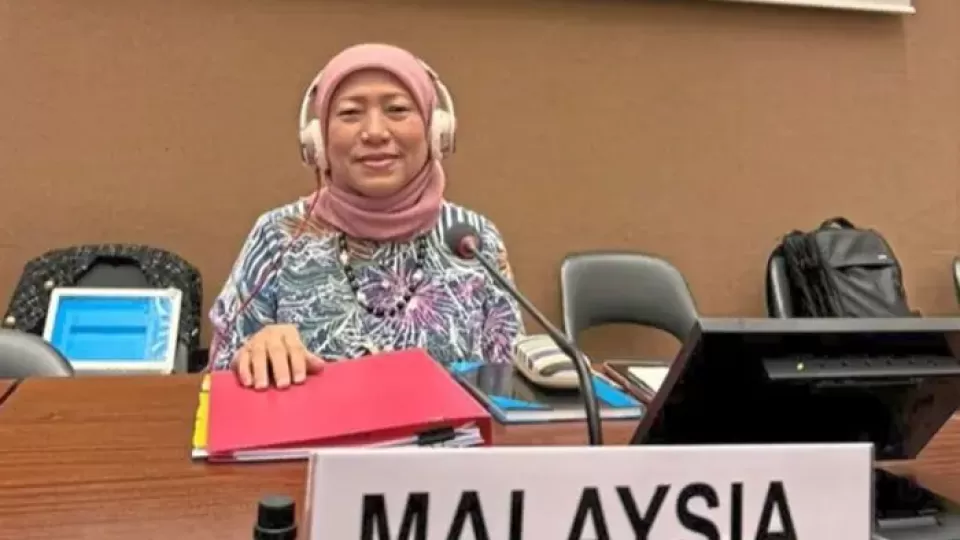July 31, 2024
KUALA LUMPUR – Malaysia has surpassed its target for women in leadership positions, with female staff making up 38.9% of decision-making posts in the public sector, says Datuk Seri Nancy Shukri.
In the private sector, 30.7% of directors in Malaysia’s top 100 public listed companies are women, exceeding the national target of 30% set for 2030, said the Women, Family and Community Development Minister.
“This achievement is attributed to government initiatives, including board diversity policies mandating the inclusion of at least one woman on the board of all public listed companies,” she told The Star.
Malaysia, added Nancy, had also reached gender parity in education, with female student enrolment rates consistently surpassing male students at all levels of education.
“In 2023, 61.2% of the overall student population in local public higher education institutions were female.
“Despite this, women participation in the labour force remains a pressing issue,” she said.
Citing the Labour Force Survey 2022, Nancy said housework, or family responsibilities, were the main reasons that Malaysian women remained outside the labour force – which correlated as to why female participation only stood at 55.8% in comparison to men at 81.9%.
She said as such, under the Madani Economy Framework, the government was aiming to increase women’s participation in the workforce to 60% by 2030.
Although women scored well in post-secondary education, Nancy pointed out there was a lack of representation in STEM-related fields like science, technology, engineering and mathematics – as highlighted in a 2023 study by Khazanah Research Institute.
“Another point of concern is the under-representation of women in politics, with them making up only 13.5% of MPs, 18% of senators and 12% of assemblymen.
“But there were more female candidates in the 15th General Election in 2022, with 127 women, in comparison to 75 candidates in 2018,” she said.
Nancy was speaking to The Star after having recently attended the 88th session of the Convention on the Elimination of All Forms of Discrimination against Women (Cedaw) in Geneva, Switzerland, on May 22.
She led the Malaysian delegation for the country’s presentation of its Sixth Periodic Report on the implementation of Cedaw.
Malaysia submitted proof of the overall advancement of women’s status in the country during the dialogue session on May 22, which was applauded by the Cedaw committee.
This year marks the 30th anniversary of Malaysia’s accession to Cedaw, with notable progress made in various areas – a reflection of the government’s dedication to improving the status of women in society.
Since Malaysia’s accession to Cedaw in 1995, Malaysia has introduced numerous policies and initiatives to empower women and protect their rights.
“The government is determined to achieve full gender parity in Malaysia and advancing women’s rights in line with continuing to empower and establish protection mechanisms for women,” she added.
Nancy also cited the Anti-Sexual Harassment Act in 2022, the criminalisation of stalking through Section 507A of the Penal Code, as well as amendments to the Criminal Procedure Code in 2023.
“These changes empower law enforcement agencies to investigate stalking cases, prosecute offenders and impose penalties – including up to three years of imprisonment,” she said, adding this showed the government’s commitment to creating a safer environment for women.
Amendments to the Employment Act were also made, including restrictions on terminating pregnant employees, extending maternity leave from 60 to 98 days for all female employees, introducing seven days of paid paternity leave for married male employees, flexible working arrangements, prohibiting employment discrimination, as well as promoting awareness about sexual harassment.
There were also changes to Financial Services Act in 2021 which helped enforce maintenance orders through Hiwalah, which freezes the bank accounts of fathers, husbands or ex-husbands who fail to pay alimony as directed by Syariah courts.
Since the introduction of Hiwalah, 54% of such cases, or 7,112 cases, have been resolved.
Nancy said the initial milestone achieved in ensuring women’s rights was the amendment to Article 8(2) of the Federal Constitution on August 1, 2001, to prohibit any discrimination based on gender.
“Gender mainstreaming has been integrated into the national development agenda to ensure comprehensive efforts towards women’s advancement,” she said, adding that gender-responsive budgeting initiatives were also introduced.
“Key programmes highlighted in the 10th Malaysia Plan are increasing female labour force participation, enhancing women’s representation in decision-making roles, as well as improving support services for women facing challenges.”

